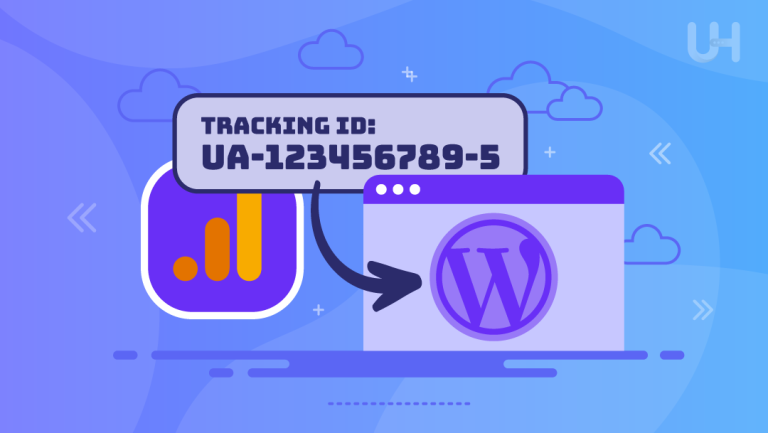Website SEO is a complex undertaking. A skilled SEO specialist requires extensive knowledge, expertise, and reliable tools for their daily work. Today, I’ll introduce you to the most valuable SEO tools that will assist you in your daily tasks and help you achieve higher rankings more efficiently.
But before we delve into the specifics, let’s clarify some terms. SEO actions can be categorized into three main areas:
- On-site SEO involves optimizing your website to enhance its visibility on Google search results.
- Off-site SEO focuses on increasing your website’s authority through actions outside the website, primarily by acquiring backlinks.
- Analysis of results entails evaluating the efficacy and impact of your SEO efforts.
Now, I can present you with various basic and advanced tools helpful in SEO. I’ll start with those mainly used in on-site SEO, then move on to off-site SEO, and finally, I’ll cover the analytical tools.
Which SEO tools can give you a significant advantage in the battle for higher rankings?
Google Search Console – an essential tool to start with
The first and most crucial tool you should have in your arsenal is Google Search Console. It’s a free tool offered by Google that provides a wealth of information about how Google perceives your website.
The keywords trigger your website’s appearance in search results, along with their positions and the number of clicks they generate. Additionally, you can explore which subpages are indexed in Google, find details about structured data, discover backlinks leading to your site, and uncover other fascinating pieces of information.
Google Search Console is an absolute “must-have” when optimizing any website. To add your website to Google Search Console, you need to verify ownership, but the process is often straightforward and doesn’t require extensive technical knowledge. Access to the FTP server or website management panel (CMS) is usually sufficient.
Keyword Research
At the beginning of any SEO journey, website optimization takes center stage. I’ll introduce you to several tools that will come in handy during different stages of this process.

The initial step in SEO typically involves keyword research. Before you start optimization, assess how your website should appear in Google searches. It entails finding words and phrases that people frequently enter into the search engine when looking for products or services you offer.
You can use Keyword Research tools to determine whether potential customers are indeed searching for the keywords you’ve brainstormed. From numerous options, you can choose the one that best suits your needs. Some of the most popular ones include:
- Google Ads Keyword Planner – This is a free tool from Google, primarily designed for planning Google Ads campaigns. You can also effectively utilize it for SEO purposes. However, please note that without an active Google Ads campaign, it will display limited data. With a campaign, the data provided will be more accurate.
- Surfer SEO – A paid tool that offers a plethora of useful features, including “keyword research.”
- Senuto – Another paid tool with an excellent keyword research module.
- Semstorm – A paid tool equipped with a keyword research feature.
- You can also use Google Trends to check the seasonality of a specific keyword and observe its popularity trend over the past few years.
Once you’ve acquired your desired keywords, it’s time to proceed with website optimization. Make sure you are using efficient hosting, so your pages load lightning-fast. If not, consider moving your services to Ultahost. Here, you can easily choose an SEO-optimized hosting server that suits your needs.
Crawler and Technical Site Audit
Another valuable tool in your arsenal is a crawler. It proves particularly useful for larger websites, while you might manage without it when dealing with SEO for smaller ones. Nevertheless, this tool, in the long run, can be beneficial.
The primary purpose of a crawler is to present your website from a robot’s perspective. It diligently collects data from your site, allowing you to find the most critical information and identify any technical errors in one convenient place. These errors may include duplicated or missing meta tags, alternate texts, or incorrect internal linking.
When it comes to crawlers, you have several options to choose from, and the most popular ones include:
- Beam Us Up – This is a free tool, ideal for those just starting their SEO journey, and doesn’t require an overly advanced tool. It’s a great place to begin!
- Screaming Frog SEO Spider – The free version has a limit of 500 URLs, which is sufficient for smaller websites.
- Website Auditor – You can use the trial or the free version for smaller websites.
- Netpeak Spider – Another powerful tool for crawling and website analysis. DeepCrawl – A comprehensive crawler with advanced features for thorough website examination.
White Label SEO Platform by Sitechecker is a paid tool that will allow you to perform SEO audits and monitoring of your clients’ websites.
To further enhance this process, using white label services can provide your team with expert support, ensuring that the new tools are not only integrated seamlessly but also tailored to fit your specific needs. This approach minimizes disruption and allows your team to adapt more quickly while maintaining focus on their primary responsibilities.
Mobility and Page Speed Tester
In the era of the Mobile First Index, it’s crucial to consider adapting your website for mobile devices. Additionally, page loading speed plays a vital role. You can check both aspects using Google Pagespeed Insights. For further assistance, tools like the Mobile-Friendly Test and GT Metrics for testing page speed will also come in handy.

All these tools are free to use. Enter the address of the analyzed website and patiently await the comprehensive report along with valuable suggestions for improvement.
Content Optimization and SERP Analysis
Once you’ve identified the keywords and completed the technical SEO analysis, it’s time to optimize the subpages of your website for the selected keywords. Ensuring that your subpages are rich in relevant phrases and keywords is crucial.
A nifty tool that’s always worth having in your toolkit is the SEO Quake browser extension. It allows you to break down your website’s content into keywords and essential phrases. Moreover, it facilitates a basic SEO audit of the site.
If you’re eager to elevate your optimization game, an invaluable companion would be a program for analyzing search results. This program will provide insights into how saturated your content should be with specific phrases and which words to use to achieve a higher ranking for your chosen keyword.
In this category, the undisputed leader is Surfer SEO. It boasts the most extensive database of analyzed factors and stands out for its user-friendliness, making it ideal for beginner SEO specialists and offering the capacity for in-depth analysis.
If you create content on WordPress, you need a good and WordPress-optimized hosting that meets all Google standards. UltaHost provides such hosting.
Now, let’s dive into the tools that can aid you with off-site SEO. The most critical aspect here is establishing a reliable and strong backlink profile for your website. To assess the current situation, potential opportunities, and your competition, you require a tool that gathers links from websites and accurately evaluates their quality.
Of course, no tool has direct access to the exact data used by Google. These tools only offer closer or more distant approximations. Despite their imperfections, they play a vital role in Website positioning. There are several tools available for this purpose, each with its pros and cons, and nearly all of them are paid.
In the free version, you can usually browse through a sample of external links and receive limited data. Sometimes, after verifying your domain, you may gain access to full data for your website but not for competitor sites – for that privilege you’ll have to pay.
Here are some options to check the links to your site:
- Ahrefs
- Majestic
- SEO Spyglass
- Surfer SEO
Google Analytics
Speaking of which, let’s not forget about Google Analytics. While not a typical SEO tool, it is regularly used by most specialists.
The quality of your website plays a significant role in SEO. Therefore, it’s essential to know what happens to users when they visit your site. Does the website attract or discourage users? What is the average time on the site, and what is the bounce rate? Google Analytics provides statistics that can answer these critical questions.
Position Monitoring – Analyzing the Effectiveness of Our Efforts
Assessing the effectiveness and profitability of your actions requires analyzing the results. There are several ways to measure outcomes, and it’s crucial to consider Google Search Console and Google Analytics. When you need more precise data, keyword position monitoring comes into play.
This website’s position monitoring tracks the daily position of specific keywords. Thanks to this, you can observe what’s happening with the keywords you’re interested in and determine whether your actions are enhancing their positions. This data is more accurate than Google Search Console due to the absence of personalized search results, making it a staple tool for practically every SEO specialist.
Competitor Analysis
In addition to monitoring your website, you may be curious about your competitors’ strategies. What if you could check the keywords for which your competitors are gaining visibility? Well, that’s precisely what tools like Senuto, Semstorm, and Ahrefs offer.
With these tools, you can discover your competitors’ positions in search results and evaluate their SEO effectiveness. Moreover, you can compare the results of your actions to those of your competitors, making for a compelling analysis, especially when you’re handling SEO for clients’ websites.
Conclusion
Above, I’ve presented the most crucial tools. I can’t imagine working without them as an SEO specialist. Like any professional in the field, I have my favorite toolkit, and I hope that this article helps you find yours. It’s always worth experimenting with various tools and selecting the ones that prove most helpful for your specific needs.
Do you want to increase your chances in successful SEO positioning? Buy Cloudflare VPS hosting and utilize the power of the best content delivery network! Get 24/7 support from our support team. Our powered infrastructure focuses on auto-scaling, performance, and security. Let us show you the difference! Check out our plans!










